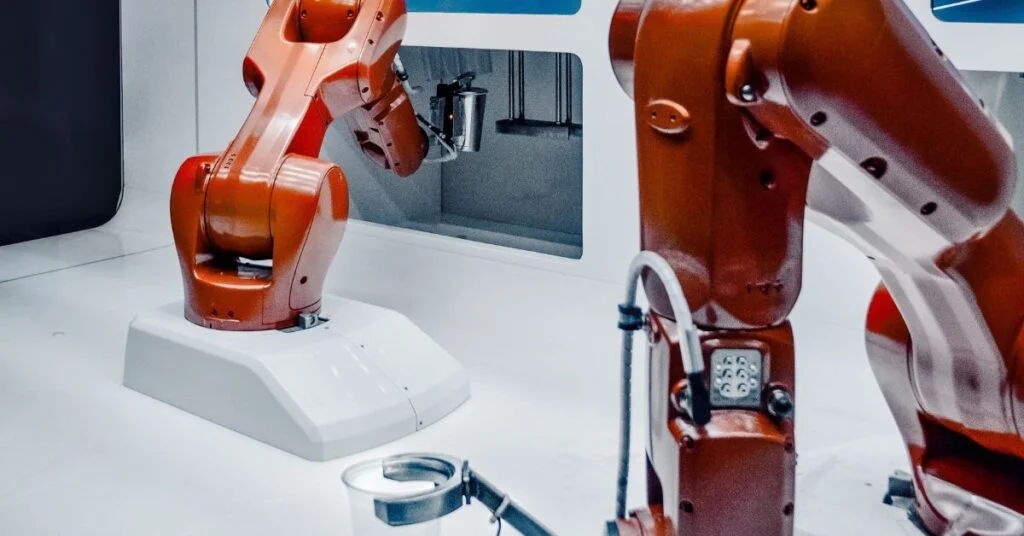What is AIOps: How Businesses Use AI to Improve IT Operations

One of the biggest challenges in the modern Information Technology (IT) environment is processing, managing, and analyzing the massive amount of operational data collected. This results in so much noise that companies need to anticipate operational problems, resulting in increased expenditure. Companies are trying to overcome this challenge with AIOps. But what is AIOps exactly? Let us understand.
What is AIOps?
AIOps encompasses two terms – artificial intelligence and operations. Ops is a shorter term used for operations in the business sector. It refers to efficiently managing a business to ensure all tasks run smoothly. It uses artificial intelligence to perform Ops tasks.
The term was introduced in 2016 by Gartner, an IT research and consultancy company. It refers to the use of artificial intelligence in IT operations. It combines the latest technologies like artificial intelligence, machine learning, and natural language processing to automate IT operations.
ALSO READ: How to Become an AI Engineer: Skills Required and Opportunities
How does AIOps work?
In simple words, it refers to adding artificial intelligence tools to an organization’s existing IT operational processes.
It uses technologies like big data, streaming analytics, and machine learning to go through vast amounts of data collected while performing IT operations. It then finds unusual events and sends alerts. AIOps is beneficial in monitoring organizational tasks, predicting system outages, investigating the source of IT problems, and allowing all stakeholders to stay updated with the latest changes. AIOps not only improves ITOps but also helps DevOps (a combination of developers and operations to enhance the efficiency of software development processes) and SRE (Site reliability engineers that use software to solve operational problems in an organization) Teams.
It analyzes large amounts of data available across networks to find patterns. This allows companies to find quicker solutions to existing problems and predict future outages. One of the biggest advantages of using it is that it helps organizations cut unnecessary costs.
ALSO READ: How to Become a Big Data Engineer: A Simple Guide
What are the Key Capabilities of AIOps?
It is a powerful tool that facilitates the use of adaptive applications. These applications can adapt to an environment to perform a variety of tasks like enhancing security, automating tasks, predicting issues, and boosting overall IT performance.
Help Understand Interdependencies in an Organization
One of the significant challenges that big organizations often face is unawareness of how all applications and systems work together. It helps all stakeholders become aware of the organizational management and flow of operations by providing real-time information.
Detects Anomaly
Anomaly means any abnormal or strange incident. It uses machine learning and data analytics to detect problems at an early stage and alert the organization.
Automates Remediation
Another key benefit is that it automatically resolves potential threats without human intervention.
Common Misconceptions about AIOps
It is a relatively new field. Due to the lack of extensive research in this area, there are a lot of myths. Let us understand the most common misconceptions according to Forbes:
AIOps Only Uses AI Technology
Many people believe it is also about artificial intelligence. In reality, AIOps combines modern technologies like machine learning and data analytics. In addition, using it is open to automating IT tasks.
AIOps is Used Only for Operations
This is another myth. While it is used mainly for operations, it also helps with security and development processes in an organization. Thus, improving overall efficiency.
ALSO READ: Artificial Intelligence vs. Machine Learning: What are the Key Differences?
 Who Uses AIOps and for What?
Who Uses AIOps and for What?
Tech Companies that utilize DevOps, cloud computing systems, and big data analytics are the most common users of AIOps. They use AIOpst to boost IT operations and enhance network infrastructure and system security. It is expected that nearly 40 per cent of companies worldwide will use AIOps by 2023.
AIOps Use Cases
Here are the top ways AIOps help solve complex problems for businesses.
- It uses cluster analysis to group similar events or alerts to provide an overview of potential issues.
- It correlates various events in IT operations to reduce data noise.
- AIOps detects the root cause of problems and automates measures to solve the issues.
- It integrates IT service management tools and IT operations management tools.
Why Do I Need AIOps?
AIOps facilitates the event, infrastructure, and application monitoring to detect potential issues. It also uses correlation and incident management techniques to provide an overview of complex operational problems. Thus, AIOps help save time and cost.
Where Does AIOps Fit into the Modern IT Environment?
AIOps aligns different IT environments in an organization. The main focus is to improve IT Service Management (ITSM) in companies by ensuring that all IT professionals work as a team rather than as individual components. In addition, it aligns the working and responses of all stakeholders in the ITSM framework.
How to Get Started with AIOps?
Even though AIOps offers several benefits, one of the biggest challenges is introducing the AIOps tool in an organization.
- Step 1: Choose the right platform by researching how other companies benefit from it
- Step 2: Examine existing manual processes in the organization that can be automated
- Step 3: Slowly introduce the culture of automation in the organization to allow team members to build their trust
- Step 4: Gather data from different sources and allow data access to the AIOps platform
It is an evolving field with tremendous growth potential. The market value in 2020 was USD 13.51 billion and is expected to reach USD 40.91 billion by 2026. Many organizations have gradually started using AIOps to save costs by reducing operational noise. Hence, there is a huge demand for developers and engineers, making it one of the most sought-after careers today. Emeritus AI and Machine Learning Online Courses can help you build a successful career. Discover it today!
By Sneha Chugh
Write to us at content@emeritus.org
















